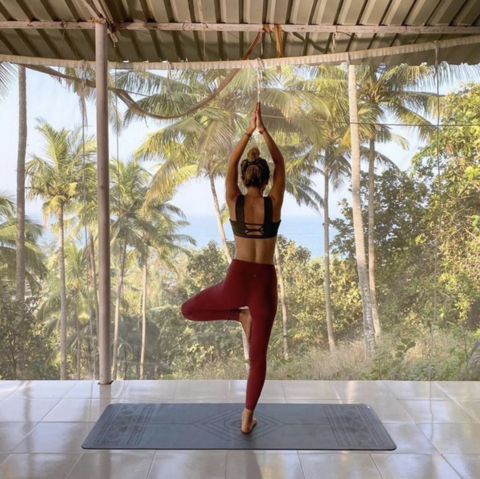World Mental Health Day falls on the 10th October every year, giving the opportunity for all stakeholders working on mental health issues to talk about their vital work, and what more needs to be done to make sure mental health care is a reality for people worldwide. World Mental Health Day also offers a platform for those of us who suffer with mental health issues to be vocal about our struggles, express our thoughts and for each of us to support one another openly and encouragingly.
This year, celebrating Mental Health Awareness Day is important, now more than ever. With the recent global pandemic and countrywide lockdowns, many of us here at Yogi Bare and in the wider community have been experiencing a spike in mental health issues. Health.org reported that mental health issues have worsened by 8.1% as a result of the pandemic, with young adults and women having been hit hardest, which makes up a lot of us Yogi Bare’s!
With our freedom limited in a bid to slow down the spread and save lives, our usual support networks have been restricted to being online or at home. Going to the gym, giving your family a squeeze, meeting up with colleagues and seeing friends on the weekend were once vital support systems, which without many of us experienced issues such as insomnia, isolation, anxiety and depression. So, what can be done to help?
Yoga To Help Mental Health
To cope with the uncertainty and change in our daily lives, many of us have been turning to the calming and anxiety busting practice of yoga. Our lovely founder Kat actually started her yoga journey as a way of coping with feelings of anxiety. So all of us here in our little community are big advocates of the benefits yoga can bring to your mental health (alongside prescribed methods of course!)
Yoga for Insomnia
If you find yourself struggling to fall asleep night after night, even when you are exhausted, you may be suffering from the effects of insomnia. Psychology Today found that 40% of adults in the United States experience some type of insomnia every year! Enter yoga.
Yoga could be the missing puzzle piece in your night time routine that helps you finally achieve some much deserved shut eye. You may assume that tuckering yourself out with an energetic yoga routine before bed may help you fall asleep faster. However, if you are practicing yoga before bed to help tackle insomnia, your yoga practice should centre more around calming your body and quieting your mind. Try poses such as a Forward Fold, Supine Twist and Legs-Up-The-Wall Pose (that pose is what is says on the tin!) to put you in a zen mood, ideal for nodding off.
If you still aren’t convinced, you can read the astounding results from a study that demonstrates the positive connection between yoga and sleep by the Sleep Foundation here, or If you would like to delve further into this topic you can read our blog post ‘Does Yoga Help Insomnia? Here’s What We Discovered’.
Yoga for Stress and Anxiety
Stress and anxiety can form large parts of daily lives for many of us. Whether this is a result of performing a juggling act of tasks, looming deadlines or the uncertainty of the recent pandemic. If this sounds familiar, it could be time to get your paws on a yoga mat to help you combat those nagging feelings of stress and anxiety.
Yoga isn’t just a wonderful practice for your physical health in the form of releasing muscle tension and releasing feel good hormones, but the act of doing yoga can incorporate controlled breathing, relaxation and meditation too. We recommend trying your hand at Restorative Yoga or Yin Yoga as these ‘easier’ yoga poses will help you slow down both your body and mind after an adrenaline filled day.
To learn more about how yoga can help with mental health, you can read our blog post ‘Yoga to Help Manage Stress and Anxiety’ here.
Yoga for Depression
Depression can have a huge impact, touching all corners of daily life and relationships of those affected. Whilst prescribed medication can help with this mental health issue, many individuals couple this with the comforting, mood boosting act of yoga to help with symptoms such as loss of energy, difficulty concentrating, chronic or long-term pain, overall health and well-being.
Practicing the gentle, calming and fluid nature of yoga along with deep breathing can encourage you to focus on positive images to calm the body and mind as well as reducing your heart rate, easing breathing and lowering your blood pressure. We recommend trying energising and comforting poses such as the Downward-Facing Dog Pose, Child’s Pose and the Plow Pose.
If you would like to hear more about the positive connection between yoga and depression you can click here for our blog ‘The Science Behind Yoga and Depression Relief’.
If you are suffering from mental health issues please do not hesitate to contact your GP for advice and support.


Leave a comment